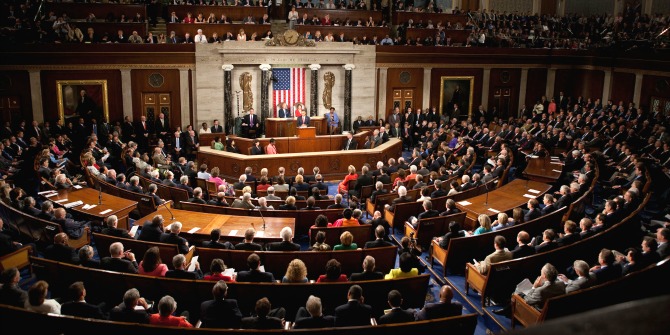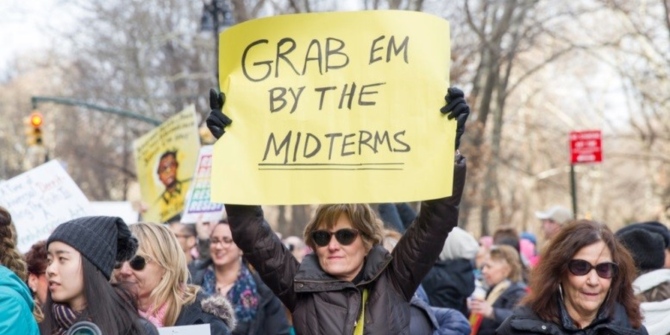 On Tuesday 26 September, the US House of Representative will be back in session, but with only days remaining to avert a government shutdown. Phelan US Centre Director, Professor Peter Trubowitz writes that the weak position of Republican US House Speaker, Kevin McCarthy means that he may have to seek Democratic votes to keep the government open – a move which may cost him his job as far-right GOP members seek to force him out of the leadership.
On Tuesday 26 September, the US House of Representative will be back in session, but with only days remaining to avert a government shutdown. Phelan US Centre Director, Professor Peter Trubowitz writes that the weak position of Republican US House Speaker, Kevin McCarthy means that he may have to seek Democratic votes to keep the government open – a move which may cost him his job as far-right GOP members seek to force him out of the leadership.
What should we expect when lawmakers return tomorrow?
Look for Speaker Kevin McCarthy to try again to secure Republican support for a stop gap plan, hoping to buy time to continue negotiating a broader deal within his caucus over the coming weeks. Meanwhile, Senate Democrats will be looking to move forward a short-term spending bill in the form of a Continuing Resolution. The idea is to send a Senate-backed plan to the House just before the shutdown approaches to force McCarthy and those Republicans in favor of keeping the government open to vote with House Democrats over the objections of Republican hardliners. Stay tuned.
Who will the public blame for a shutdown?
The party that forces the shutdown invariably gets blamed for putting narrow political interests above the public interest. This happened to Republicans in 1995-96 when they battled Bill Clinton over major spending cuts. It happened in 2013 when Republicans opposed implementation of the Affordable Care Act (Obamacare). And it happened in the 2018-19 government closure over Donald Trump’s threat to veto any spending bill that did not include funding for a border wall. Each time Republicans have received the lion’s share of the blame. There’s no reason to think this time will be any different.
Why then isn’t Speaker McCarthy trying to avoid a shut down?
He is. The problem is that, with only one vote needed to trigger a vote to remove him as Speaker, he is too weak politically to control his own Republican caucus. A small hard-right faction of the party has essentially hijacked the legislative agenda, threatening to force McCarthy out as Speaker if he doesn’t meet their demands on spending. It’s political blackmail, and thus far, it’s working. Indeed, the real question is: why does the hard-right want to shut down the government? They claim it’s all about lowering the federal debt, but in truth it has more to do with internal political maneuvering within the Republican Party.
Is a shutdown on 1 October 1?
A government shutdown is not inevitable. But to avoid it McCarthy may have to work with Democrats to keep the government running. If he is willing to reach across the aisle, he will likely be able to secure the necessary votes to keep the lights on. But doing so could cost him his job as a Speaker. That’s because hard core ultraconservative Republicans have threatened to strip him of his speakership if he goes bipartisan to outflank them. That’s McCarthy’s dilemma. He would need a guarantee from Democrats to vote for him as Speaker if he lines up with them on avoiding a shutdown. What would Democrats want in return?
- Featured image credit: “IMG_9011” (CC BY 2.0) by cornstalker
- This article is based on a 25 September interview with Professor Trubowitz on CNBC Squawk Box Europe.
- Please read our comments policy before commenting
- Note: This article gives the views of the author, and not the position of USAPP– American Politics and Policy, nor of the London School of Economics.
- Shortened URL for this post: https://bit.ly/3LCLdZE







Right on the money.
It’s also part of the problem that Trump has been vigorously urging McCarthy and the so-called Freedom caucus to shut down the government to stop the Justice Department from advancing its cases against him.